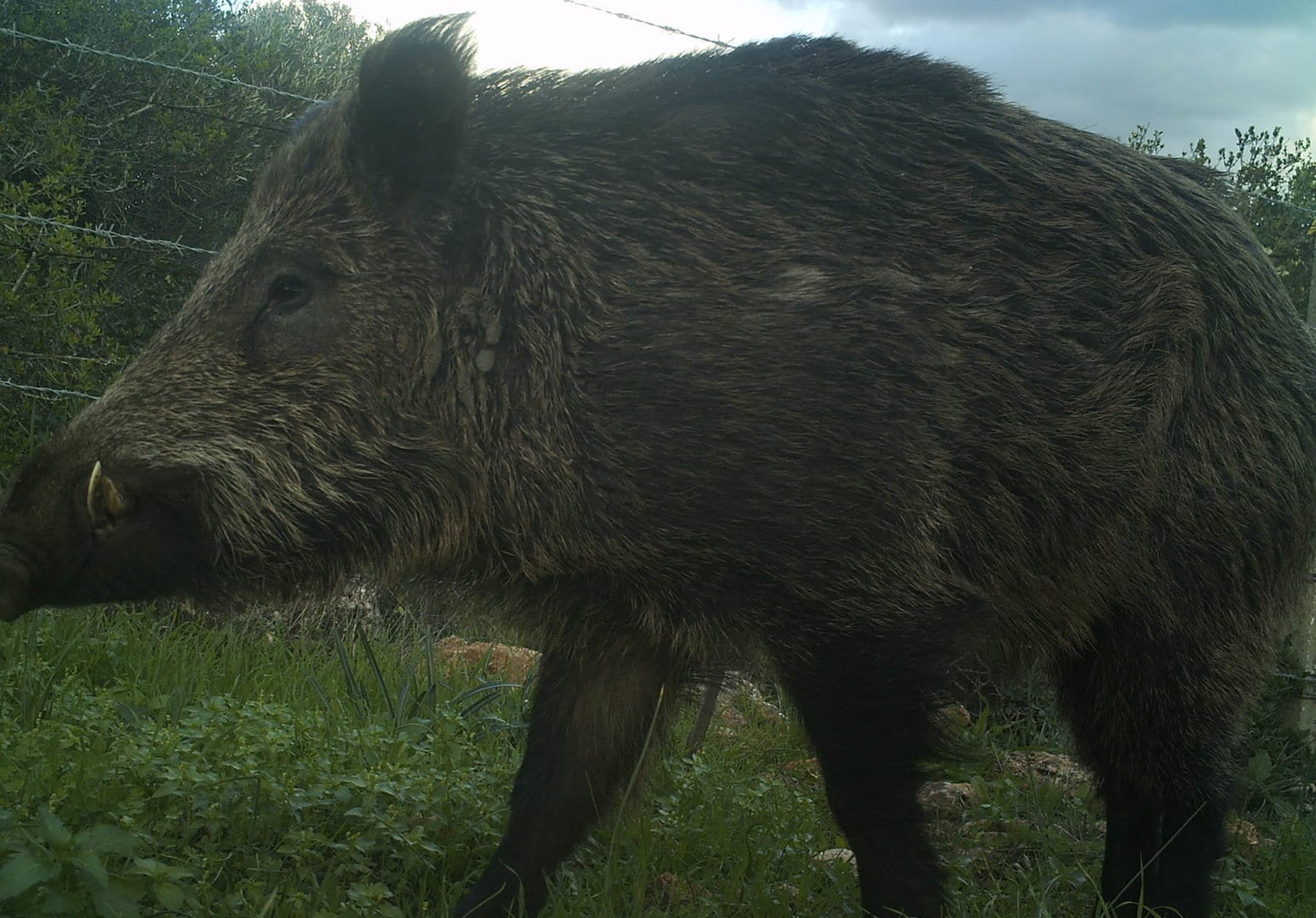Wild boars as seed dispersal agents
Guy Dovrat, Avi Perevolotsky, Gidi Ne’eman
Some large omnivorous mammals serve as effective dispersal vectors of plant seeds that are adapted for dispersal through endozoochory or epizoochory.
 News and Events
News and Events
Guy Dovrat, Avi Perevolotsky, Gidi Ne’eman
Some large omnivorous mammals serve as effective dispersal vectors of plant seeds that are adapted for dispersal through endozoochory or epizoochory.

Seed dispersal by native wild boars (Sus scrofa lybicus) was investigated at Ramat-Hanadiv Park in central Israel by controlled germination, in a greenhouse, of dung, pellets, and brushed hair samples. Many seedlings emerged from the dung and hair samples but pellets did not contain any viable seeds. Forty-one percent of the species and 91% of the seedlings dispersed by endozoochory were exotic species. Eighteen percent of the species and 59% of the seedlings, dispersed by epizoochory were exotic species. Some of these species are ruderal plants which grow along roads and disturbed sites in the park, but only one has established in the park core. The large numbers of exotic seeds illustrate the potential impact of the omnivorous wild boar as effective vector dispersing exotic plant species from agricultural and urban areas into protected natural ecosystems. However, the establishment was only minor yet probably due to summer drought and high resistance of the Mediterranean maquis to invading plants.
Any question? We will be glad to help
We have worked hard to make our buildings, infrastructure and service accessible to special sectors of the population so that everyone can enjoy an accessible and enjoyable visit to the Memorial Gardens and Nature Park.
Sustainable gardening is defined as gardening that considers the needs of the current generation without harming the needs of future generations. It includes garden design that considers the existing elements on site – the landscape, soil, environment and vegetation suitable for the region
The picnic area is located near the secondary parking lot. You are welcome to spend time there before or after your tour of the Gardens.